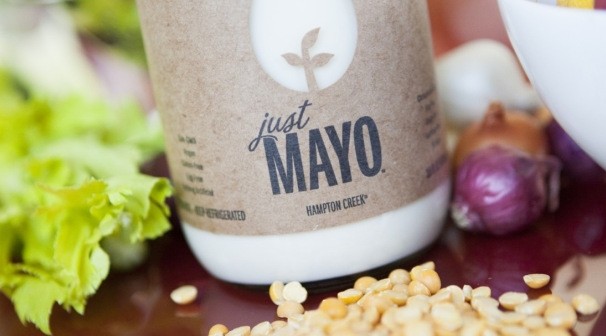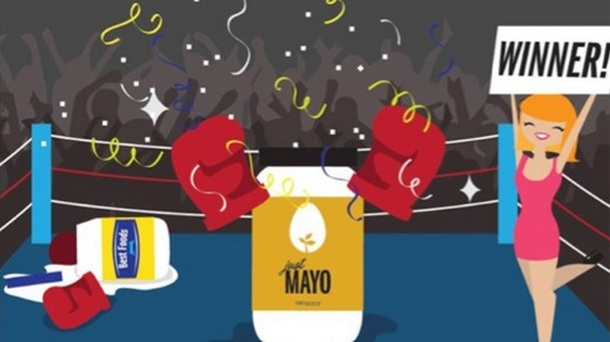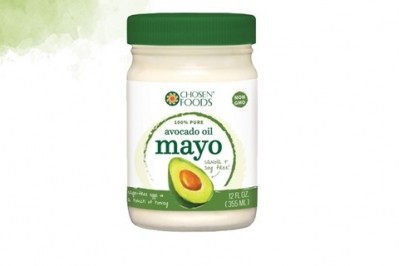Hampton Creek Foods sued again over 'deceptive' Just Mayo name

In the latest false advertising lawsuit* - filed in federal court in the southern district of Florida on February 4 and voluntarily dismissed on February 6 - plaintiff Leah Davis claimed that the federal standard of identity for mayonnaise (21.CFR.169.140) stipulates that it must contain “one or more… egg yolk-containing ingredients.
“Under federal regulations, common dictionary definitions and as consumers understand it, mayonnaise or ‘mayo’ is a product that contains eggs”, added Davis, who is represented by law firms Shepherd, Finkelman, Miller & Shah LLP and Goldenberg Schneider L.P.A.
But Just Mayo - made from canola oil, yellow pea protein and other ingredients - is “not mayonnaise at all”, claimed Davis, who accused Hampton Creek of violating the Florida Deceptive And Unfair Trade Practices Act, and unjust enrichment.
"As a result of defendant's false and misleading statements and failure to disclose, plaintiff purchased the product and the class members [Florida consumers] purchased thousands of jars of the product and have suffered - and continue to suffer - injury..."
Moreover, Just Mayo, which features an egg-shaped image on its label, and is referred to as ‘mayo’ and ‘mayonnaise’ in some marketing materials, does not taste or perform like ‘real’ mayonnaise, alleged Davis in her ‘copycat’ lawsuit, which mirrors the case brought by Unilever last October, which it dropped in December (click HERE) after a tidal wave of bad PR.
Case could be refiled
However, just two days after her complaint was filed, court records show it was voluntarily dismissed, news welcomed by Hampton Creek CEO Josh Tetrick, who told FoodNavigator-USA: "I think it continues to show that if we keep making it easy for good people to do the right thing they'll do it. And no matter what, we're going to keep standing up for that. And we're going to send Leah a free case of Just Mayo."
However, the dismissal was without prejudice (which means Davis could sue again), and while her attorneys are not commenting on their plans, a February 5 court order issued by Cecilia M. Altonaga, the US district judge handling the case, suggests that jurisdictional issues were to blame, which raises the prospect that the case could be refiled.
In her order, Judge Altonaga noted that "in any class action, the claims of the individual class members shall be aggregated to determine whether the matter in controversy exceeds the sum or value of $5m", and that at this stage of proceedings, the plaintiffs had not provided sufficient evidence to prove that the damages exceeded this amount.

Attorney: Plaintiffs in the new case may actually have an easier time proving their allegations in court than Unilever
So what do legal experts think about the case?
Bruce Silverglade, Principal at law firm Olsson Frank Weeda Terman Matz PC, noted that Davis had filed a consumer class action complaint alleging violations of Florida consumer protection laws, whereas Hellmann's mayonnaise maker Unilever - a competitor of Hampton Creek - had alleged violations of the Lanham Act, a federal unfair competition law.

He told FoodNavigator-USA: “The plaintiffs in the new case may actually have had an easier time proving their allegations in court than Unilever would have had because the legal standards under Florida consumer protection law are more flexible than those under the federal Lanham Act."
Ivan Wasserman, partner in the Washington DC office at law firm Manatt, Phelps and Phillips, added: "This could come down to a question about which came first, the mayo or the eggs? In other words, are consumers buying mayonnaise because it contains eggs or because it tastes, looks, and performs like the product they know as mayonnaise?
"Do they even know mayonnaise has eggs? Even if consumers thought that the product contained eggs based on the labeling, perhaps some would have been even more likely to purchase it if they knew it did not have eggs.
"Unlike a case involving a product that does not do what it claims to do, or a product that is not natural when it claims to be, in this case the nature of product may actually, for some consumers at least, be preferable to the nature of the product they are allegedly being 'misled' into purchasing."

Product label says 'egg-free'
David L. Ter Molen, a partner in the Chicago offices of law firm Freeborn & Peters LLP, told FoodNavigator-USA that Hampton Creek would face tough challenges if the case is re-filed: “As with the Unilever lawsuit, the central allegation is that "[u]nder both federal regulations and common dictionary definitions, 'mayo' is 'mayonnaise,' and 'mayonnaise' is a product that must contain eggs.
"And referring to the egg-free product as "Just Mayo" only heightens the alleged deception. Putting aside issues such as standing, it is doubtful that Hampton Creek can have the two claims dismissed as a matter of law, but it may attempt to do so based on the 'egg free' statement on the label.
“Notably, Hampton Creek has publically stated that the FDA standard of identity relates to “mayonnaise” and that “mayo” is a distinct term. That argument will likely not gain much traction in the lawsuit.”
David Biderman, a partner in Perkins Coie’s Consumer Class Action Defense practice, told us he was not surprised to see that the Unilever case had led to copycat class action litigation, adding:
“The lesson is to be derived from this is that aggressive labeling is very risky now not only because of the potential for claims from competitors but also because of follow on class actions.”

Hampton Creek: We like the way Just Mayo rolls off the tongue
Speaking to us last year, Tetrick said he had taken legal advice when developing the Just Mayo name and noted that the standard of identity explicitly refers to ‘mayonnaise’, not ‘mayo’, which, he noted, is also used by other vegan spreads such as Boulder Brands' Earth Balance egg-free ‘Mindful Mayo’.
As for consumer deception, while Just Mayo does not shout about its egg-free credentials on the front of pack, few consumers familiar with the brand or with Hampton Creek were probably unaware that it was egg-free, given that the whole rationale behind the product stemmed from Tetrick’s well-publicized dislike of industrialized egg production, he said.
Plant-based momentum
San Francisco-based Hampton Creek Foods, which has attracted a significant amount of venture capital, talent and publicity in the past couple of years, has been systematically screening thousands of plants with a ‘laser-like focus on functionality’ to identify those with properties from coagulation, emulsification and aeration to coloring and sweetening.
However, it is best-known for Just Mayo, which has secured shelf-space at a number of leading retailers in the US and overseas.
*The case is Leah Davis et al v Hampton Creek Inc 1:15-cv-20440
More to follow...

















